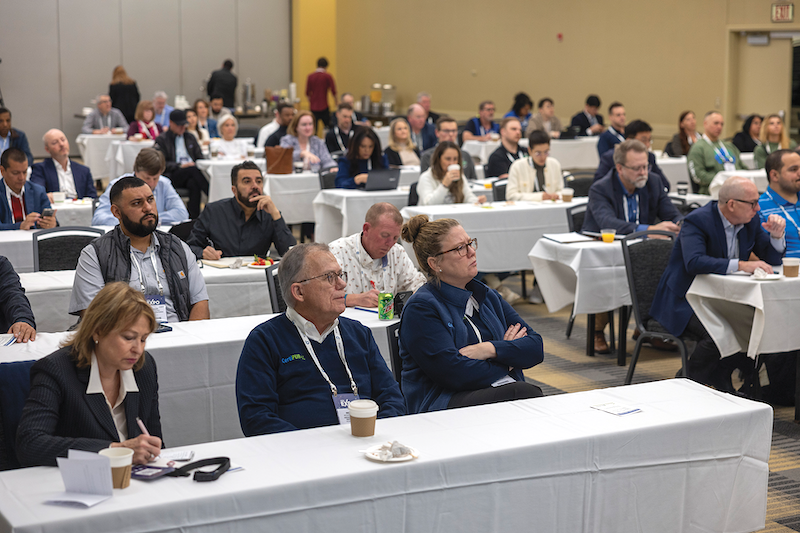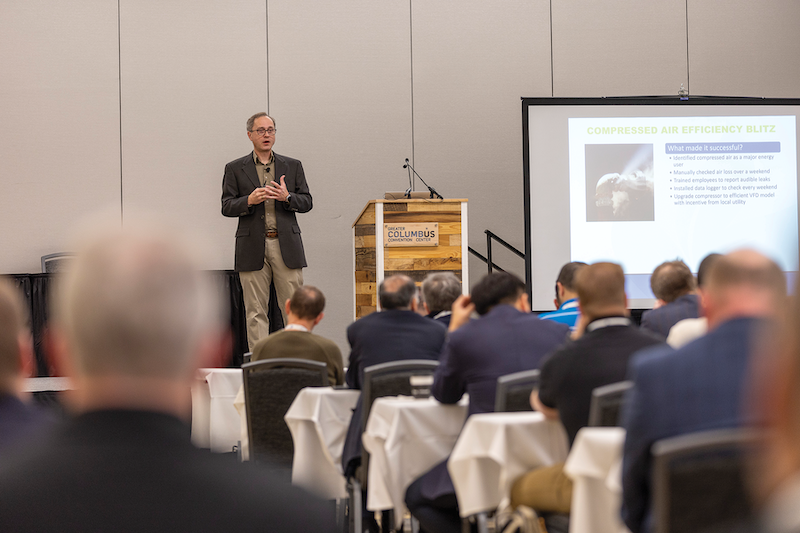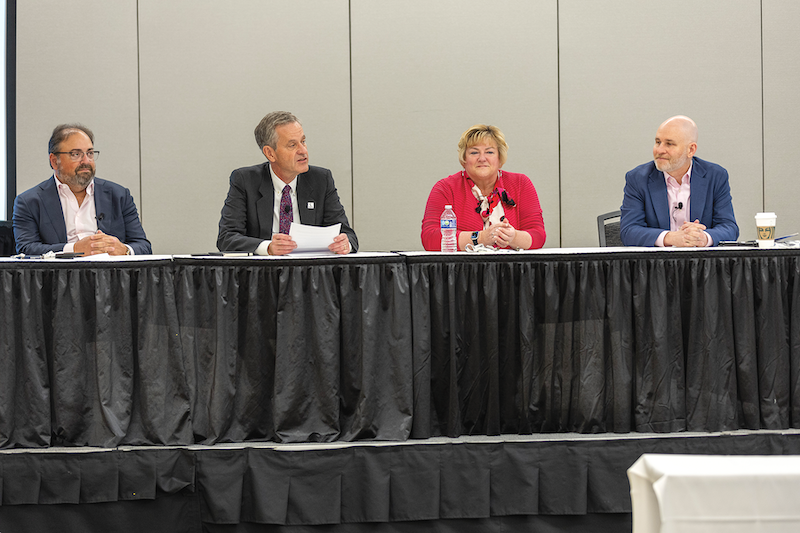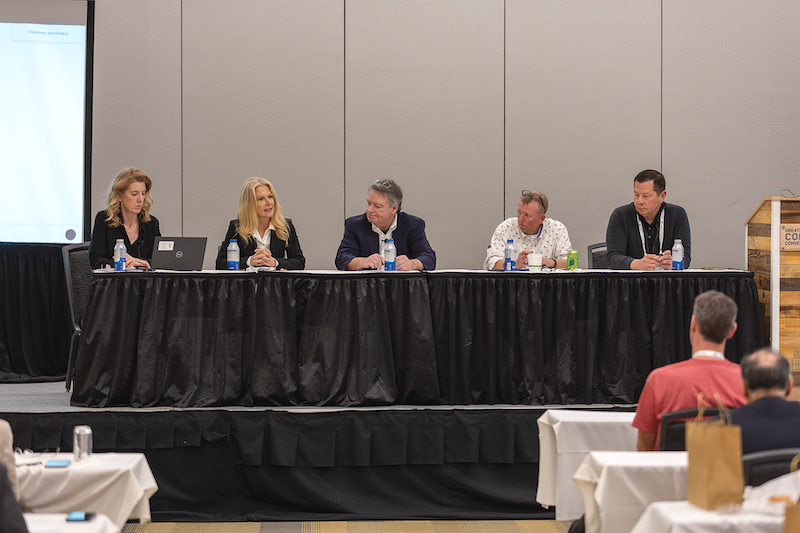Panel discussions punctuated the show with good information and inspiration.
In addition to all the shopping on the show floor, ISPA EXPO offered a chance to learn with breakfast and lunchtime panel discussions.



The first panel addressed ways to prepare for government action and policies that will affect the mattress industry.
Alison Keane of the Flexible Packaging Association brought news of packaging recycling laws that have been enacted in California, Colorado, Maine and Oregon, which are likely to have an impact on mattress suppliers, manufacturers and retailers.
Because each state is enacting its own laws, it’s difficult to say exactly which types of products will be affected.
“None of these programs have been implemented yet,” Keane said. “We’re looking at 2027 to 2030. In Maine, for example, we didn’t think it would be anything except consumer products, but they’re writing the regulations and they’re very broad, so it could be business to business or even be what we would consider industrial. We’re fighting really hard to make sure industrial isn’t in there and hopefully not business to business. Having said that, Oregon, we already know, it’s going to be all in. Colorado — it probably will be in, and California is still wait and see.”
The entity that’s responsible for the packaging fee is the one that puts the product into packaging. Speaking to manufacturers, Keane said: “If you’re going to get something from your supplier, the supplier will be responsible for their packaging. You will be responsible for your packaging and the retailer is going to be responsible for their packaging, all the way up the supply chain. If it’s e-commerce, you’re going to have responsible parties. You’re going to have the product brand owner for the immediate packaging, and you’re going to have the shipper for the transport packaging.”
Fee calculations are likely to vary by state, although three of the four states have the Circular Action Alliance, and Keane hopes for some harmonization between the states. However, it’s possible it will be a hodgepodge.


Shifting gears to another topic, Neal Cohen, an attorney who specializes in consumer product safety issues discussed the U.S. Consumer Products Safety Commission’s proposal to change current certificates of compliance rules.
The Consumer Product Safety Commission has been working for years towards electronic filing of certificates of compliance for imports for their targeting practice,” he said. “It’s going to be a very big change from how you’re going to work with your customs broker.”
Implementation isn’t expected until early 2025.
In the arena of California’s new law that will ban the use of bare fiberglass yarns from new mattresses, the CPSC is monitoring and studying it, but has no plans to regulate the use of fiberglass in mattresses, Cohen said. “I see the CPSC being more focused on the changes to the 1632 issue and the ticking issue” under its existing mattress flammability standards.
Yohai Baisburd, partner with the law firm of Cassidy Levy Kent in Washington, D.C., explained the roles of the U.S. International Trade Commission and the Department of Commerce in determining whether imported mattresses are being dumped in the United States. Preliminary antidumping duties announced in the most recent group of cases range from 10% to 750%. These cases are expected to conclude in May and June of this year.
Other panels during the show explored research from the Better Sleep Council (“Insights Into Today’s Mattress Shopper”) and showcased the expertise of the Mattress Recycling Council and the advances in sustainability (“Navigating the Road to Sustainable Sleep: Best Practices in Sustainable Manufacturing”).
Read the summary coverage of ISPA EXPO 2024: ISPA Expo Trends: Sustainability & Innovation Take Center Stage and all the coverage of those on the showroom floor: ISPA Innovation: Automation & Sustainability Trends from EXPO.




